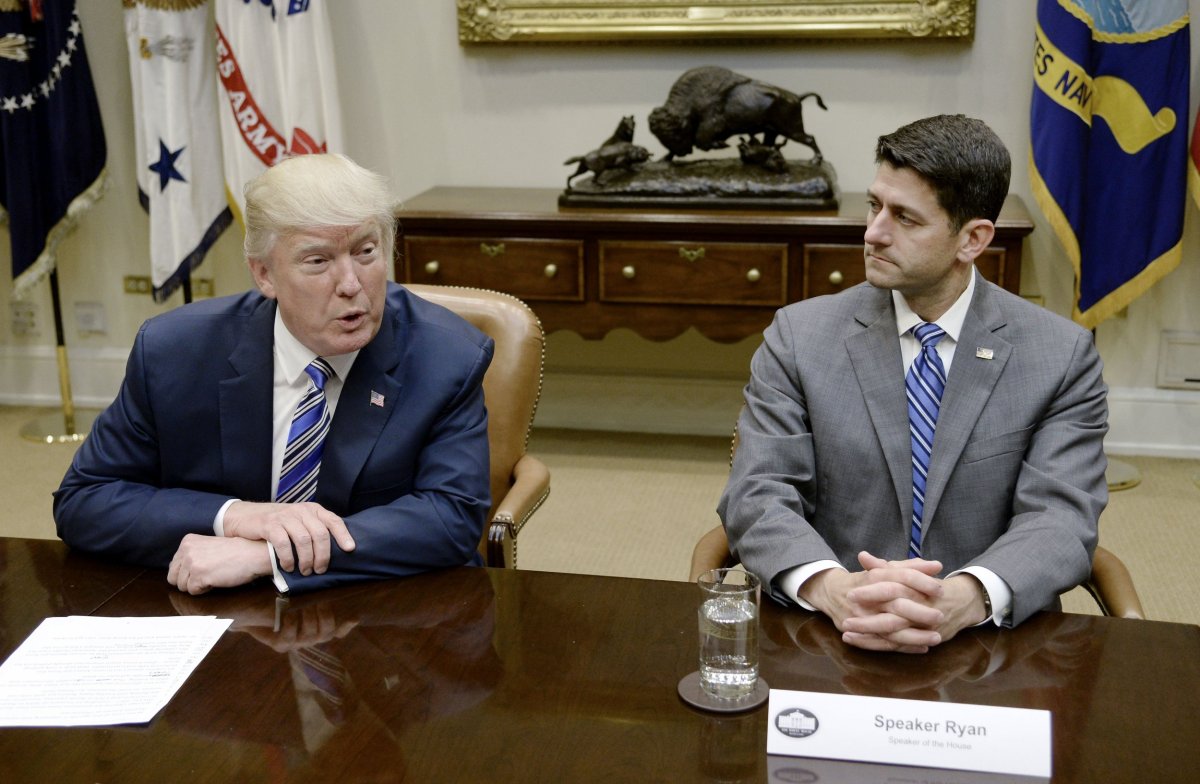This originally appeared on Quora. Answered by Carter Moore.
Trump's election in 2016 was pretty much the final defeat for the Ryan/"Young Guns" wing of the Republican House Caucus, a wing which we might call "pragmatic conservatives," which had been losing running battles with harder-line conservatives since 2013.
He was, in some ways, a victim of his own success.

When Speaker Ryan came to Congress in 1999, only 13% of Republicans in the House were more conservative than him (according to his first dimension NOMINATE score). He was successful in pulling the Republican Caucus ever-rightward, if not on social issues than on tax and entitlement reforms that drew sharp points of difference with Democrats and gained broader electoral currency following the Great Recession.
At the start of this Congress, 34% of House Republicans were rated as more conservative than Ryan, which presented a problem.
The House's conservative Republicans have been getting more capable of pulling the House leadership around with each Congress since the start of Obama's presidency. then-Speaker Boehner's attempt to work with President Obama on a "grand bargain" to solve structural issues in the Federal budget were roundly criticized (and sunk… depending on your point of view) by the conservative wing, and Boehner's time as Speaker was basically on borrowed time since then.
Ryan, who despite being an ideologue, prefers "grand bargain"-type legislation built on meticulous policy knowledge that (ideally) his opponents find hard to refute, and so come to the negotiating table (case in point, the budget deal he struck with Democrats in 2013 in the wake of the Obama-Boehner failure). Ryan saw the writing on the wall for this kind of legislating even before the Age of Trump, apparently telling outgoing-Speaker Boehner that being Speaker of the House would be his last, and time-limited position.
These days, Congress cares far more about ideological purity than policy know-how; but when you have a caucus split on their views of the President and of the Speaker, getting meaningful, grand legislation passed is almost an impossibility (as the numerous false-starts on health and tax reform in 2017 showed).
Currently, Trump enjoys a better than 90% approval rating from "very conservative" Republicans; and given that Ryan never really, legitimately embraced Trump - I won't go on to list all their public disagreements from the campaign through to today, but for example:
Our very weak and ineffective leader, Paul Ryan, had a bad conference call where his members went wild at his disloyalty.
— Donald J. Trump (@realDonaldTrump) October 11, 2016
…which made it ever more difficult for Ryan to get the conservatives in the House to support his legislation. The conservatives' approval of Trump contrasts with the 66% approval rating among conservative-leaners (who make up about 13% of the House Republican Caucus, depending on your preferred NOMINATE cut-off).
And so what does it mean for the Republican Party that Ryan is walking out on this dynamic?
Well, immediately it means that they lose their best fundraiser and non-Trump standard-bearer at a time when they expect to get a shellacking. Sure, he'll still be out there bringing in dollars; but his clout is now much diminished, and his general power to lead and influence the Republican election strategy has taken a terminal blow. Who's going to pay attention to his ideas when he's not going to be around to see if they work?
And following on that point, Ryan's departure means that House Republicans might be less likely to pull out any more legislative accomplishments going into November, increasingly divided over who takes over for the caucus. Kevin McCarthy leans to the left of Ryan, which could be a bonus when facing a Democratic wave; whereas Steve Scalise, former chair of the powerful Republican Study Committee, is to the right, which could be valuable in maintaining conservative cohesion.
If House Republicans get caught up in obsessing over succession, then their late-session agenda and messaging is basically dead.
Moreover, given Trump's generally anemic approval ratings - which are strongly correlated to poor performance for the President's party in the midterms - having Paul Ryan, and not Donald Trump, be the nationally recognized face of the Republican Party was probably one of their best assets.
Now it's Trump, McConnell (who's even less popular than Trump, even in his home state), and dysfunction. That's not helpful going into November.
But if anything else, Ryan's departure puts wind into the "sinking ship" narrative of the old Republican Party in the age of Trump. It doesn't signal a lot of confidence for moderate Republicans going into November - the ones whose districts are most likely to be on the chopping block if the Democratic wave hits hard.
Uncommon Knowledge
Newsweek is committed to challenging conventional wisdom and finding connections in the search for common ground.
Newsweek is committed to challenging conventional wisdom and finding connections in the search for common ground.
About the writer
To read how Newsweek uses AI as a newsroom tool, Click here.






